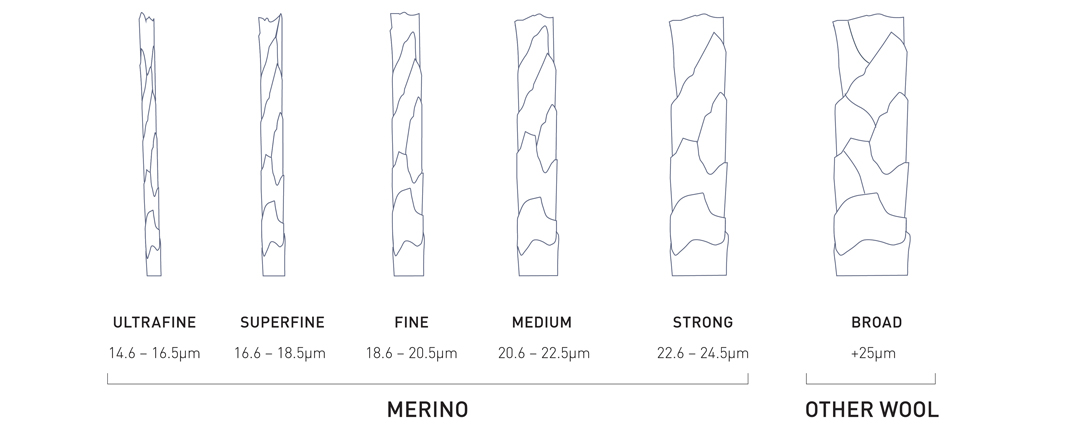Merino wool is finer than human hair and can be softer than cashmere.
The Merino wool difference
Merino wool is the finest and softest sheep’s wool in the world. Merino wool makes up just 1% of the world’s fibre for apparel – true luxury.
How is Merino wool so soft?
1. Merino wool fibres are super fine
2. Merino wool fibres are flexible and bend with your body
3. Merino wool has crimps in the fibre that make it perfect for next-to-skin
Why are some garments itchy?
If your garment is itchy or prickly, it’s because of the coarseness of the fibre it is made of, not the type of fibre.
How do we measure softness?
The softness of fabrics is measured by the diameter of the fibre used. Fibre diameter is measured in microns.
What is a micron?
A micron (μm) is one millionths of a metre. The finer the micron, the softer the fibre. The feeling of prickle and itch comes from fibres with coarse microns of any type of fibre.
Merino wool has a much finer micron than all other wools.

What does Merino wool softness mean for you?
Click on any of the below topics to find out more.


